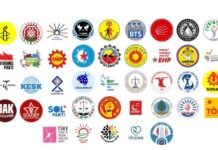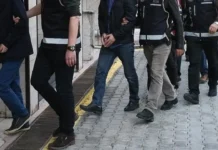Emine Şenyaşar, three of whose family members were murdered by people connected to a lawmaker from Turkey’s ruling Justice and Development Party (AKP), is still seeking justice six years after the incident, the Mezopotamya news agency reported on Friday.
Having continued their “Justice Watch” vigils for years despite obstruction from the authorities, the Şenyaşar family is preparing to hold a commemoration on Saturday, the sixth anniversary of the murders, the report said.
Emine Şenyaşar has faced 33 separate investigations on “insult” charges due to her remarks during the sit-ins, 10 of which turned into court cases. She has also been detained many times, has seen her banners confiscated and has been ordered to pay fines.
In June 2018 her husband Esvet Şenyaşar and two of their sons, Adil and Celal, were brutally murdered in Şanlıurfa by the family of AKP deputy İbrahim Halil Yıldız.
They were initially attacked in their store and taken to a hospital. However, they were followed by Yıldız’s family to the hospital, where they were ultimately murdered. Eight more people were injured during fights between the two groups. An older brother of Yıldız was also killed.
According to her son Ferit Şenyaşar, who survived the incident, bullets from 17 different guns were retrieved from the body of one of his brothers.
Two Şenyaşar brothers, Ferit and Fadıl, who were injured but survived, were later detained, and Fadıl Şenyaşar was arrested. However, none of Yıldız’s relatives or his bodyguards were detained despite the fact that three people had died.
Only 15 months later, on September 18, 2020, was Yıldız’s older brother, Enver Yıldız, arrested.
The Yıldız family claimed that they had been the victims of terrorism and that the Kurdish Şenyaşar family had links to the outlawed Kurdistan Workers’ Party (PKK).
The next hearing in the murder case is scheduled for July 19.
The case is seen by many as an epitome of the prevalent climate of impunity in the country, which was ranked 117th among 142 countries in the 2023 Rule of Law Index published by the World Justice Project (WJP) in late October, dropping one place in comparison to the previous year.















